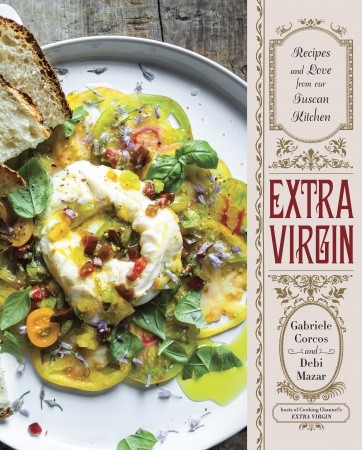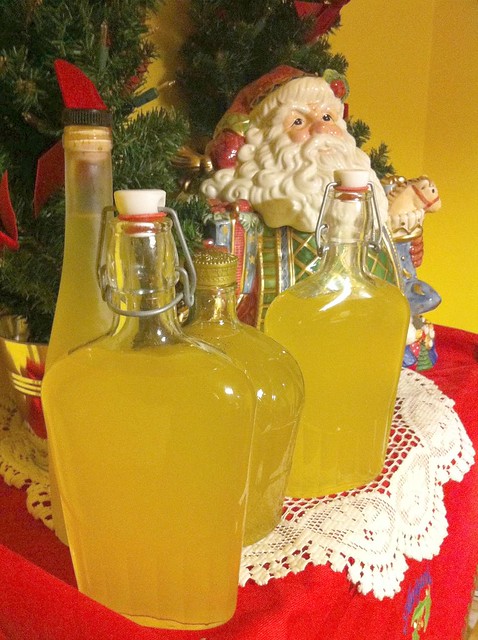Extra Virgin: Recipes and Love from our Tuscan Kitchen
Gabriele Corcos and Debi Mazar
It’s difficult to create yet another Italian food cookbook in a world that seems to be saturated with them, but Mazar and Corcos have created an excellent addition to your kitchen bookshelf. While the recipes are top notch, it is their stories that really sell this cookbook. Having visited my wife’s family in Sicily countless times, I can relate greatly to the stories and experiences shared throughout the book. There is, indeed, something unique about Italian food and culture and I hope others can experience it in a small way through this book.
Almost like a family cookbook passed down from generation to generation, Extra Virgin gives us the food stories of the authors’ childhoods as ways of relating to food and how they arrived at the Recipes used in the book.
I originally discovered Mazar and Corcos through their original podcast “Under the Tuscan Gun.” As a fellow podcaster,it was quite heartening to see them turn their original personal foray into video into a mainstream cooking show on the Cooking Channel. Sure, Mazar’s existing celebrity make this transition a bit easier, but I think the quality of their personalities, their presentations, and the recipes also helped them stand out among the crowded food entertainment world.
With most of the recipes in the book, I was struck by the small personal touches and changes they applied to what our some very standard and traditional Italian recipes. This reflects the hyper-regionality I have found in all Italian foods. These personal touches are what make each recipe unique. Recipes change from town to town and village to village in Italy, but they also change from individual to individual and family to family. This creates an innovative and energetic food style that, while seemingly very static and traditional, bristles with innovation and adaptation.
Some of the recipes that stood out the most to me, included such simple fare as Pecorino and Honey dip, Grilled Asparagus wrapped with Lardo (which they say works much better when grilled than the traditional prosciutto) and sausage and asparagus risotto. I had a skip over a few recipes that didn’t fit my style, like those using raw meat or tripe, but there are plenty of other recipes I will be making very soon.
While I’ll come back to this cookbook for the recipes, for sure, the first time I read it, it was more like reading a book of family stories collected over time. The photography is top notch and helps illustrate not only the recipes but also the relationship between the authors, their children and their families. It is always great to see a cookbook that moves beyond the “recipes and pretty pictures” motif and tells a great story.
My Homemade Limoncello
Finally, I was so happy to see a very familiar recipe at the end of the book. Several years ago, after returning from another trip to Sicily, I went looking for limoncello recipe. This is how I first discovered Gabriele, Debi and the Under the Tuscan Gun podcast. Sure enough, here is in the Drinks section of the cookbook. This is the recipe I’ve been sharing with friends and family for years now. Finding it here was like seeing an old friend again.
Extra Virgin would be a great addition to your cookbook shelf, especially if you’re looking for something that provides not only recipes but also a look into Italian, and Italian-American, culture and family.
** I received a free copy of this book from Blogging for Books for this review, but these opinions are my own.
More information on Extra Virgin and the Authors:
- TheTuscanGun on Twitter
- Debi_Mazar on Twitter
- Under the Tuscan Gun web site
- Extra Virgin on The Cooking Channel






